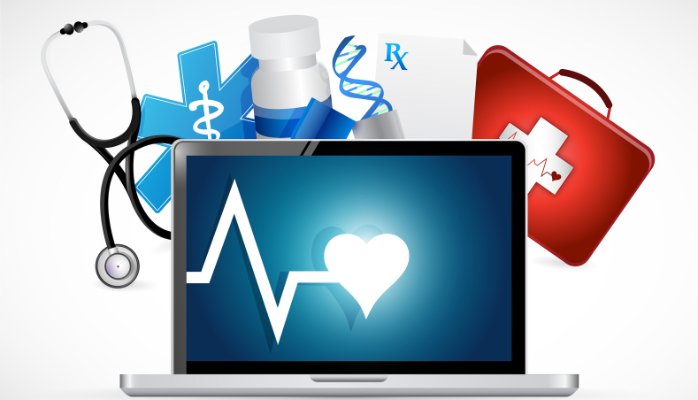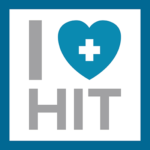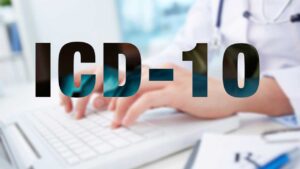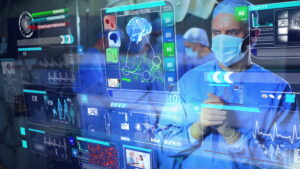It’s Healthcare Information Professionals Week….HIP Week!

HIPs: Why Your Hospital Cannot Do Without YOU
 In this information age, healthcare and a host of other industries would cease to be effective if data was not of the sufficient quality. There are many critical factors why hospitals, and health systems of every kind, cannot do without the sufficiently skilled Healthcare IT professional. High quality data helps to create the full picture of diagnosis for the nurse, physician or specialist; and it also improves patient safety and care quality. Let’s take some time to examine the importance of the Healthcare Information Professional as HIP Week passes (March 26-April 1, 2017).
In this information age, healthcare and a host of other industries would cease to be effective if data was not of the sufficient quality. There are many critical factors why hospitals, and health systems of every kind, cannot do without the sufficiently skilled Healthcare IT professional. High quality data helps to create the full picture of diagnosis for the nurse, physician or specialist; and it also improves patient safety and care quality. Let’s take some time to examine the importance of the Healthcare Information Professional as HIP Week passes (March 26-April 1, 2017).
The EPIC Success of EHRs (Electronic Health Records)

One of the most visible ways that quality information has impacted the healthcare arena is the growing use of EHRs (Electronic Health Records). EHRs have unquestionable benefits for the wide variety of healthcare professionals, and departments using them. With their use, detailed patient history can be adequately stored, clinical notes can be shared, and Lab and Imaging results can be accessed more easily.
In recent years, hospitals, healthcare systems and other healthcare organizations that use EPIC (EHR) software, have experienced outstanding success. Many of EPIC’s customers have shown financial gains, and research shows a quarter of million drug to drug interactions to date. The company is currently in the process of developing two new versions of EPIC. The first called Sonnet, has a lower cost point than the full EPIC EHR, and its features are better tailored to meet the needs of a smaller regional hospital. The second new version is a hybrid between the more expansive version of EPIC and Sonnet.
Why Cyber Security is as important as New Technology

As new technology impresses itself on the healthcare landscape, enhanced cyber security systems have become prioritized in order to protect critical and sensitive data. In a survey conducted by Healthcare IT news, in which 95 healthcare executives participated, 52 percent of the respondents highlighted the need for Cyber Security to be upgraded. As Joe Fisne, CIO of Geisinger Health systems observes, “From the standpoint of security being No. 1, it certainly is one of the most critical things in healthcare today,”. Out of several features of cybersecurity recorded in the survey, application security and network security topped the list for healthcare executive respondents.
How Telehealth could have an even greater impact in 2017
One of the growing debates in healthcare is the future role of Telehealth. More and more health providers are using it including: New York Presbyterian, St Luke’s University Health Network and Marshfield Clinic.
One of the positive aspects of telehealth is overall population health as it enables more immediate provider-to-provider consulting and referral management. It also promises more extensive use of both medical professionals and facilities. Perhaps, more essentially, it will open up more avenues for business opportunities; extending hospitals’ reach to many more patients outside its confines – even engaging patients who live in an entirely different state.

For telehealth, the possibilities are endless. Roy Schoenburg, MD, MPH, CEO of American Well predicts the stage is set for a changed reimbursement framework. Payers such as Medicare will lighten their restrictions, allowing physicians to get paid for remote work. This will lead to an increased volume of telehealth services and a greater variation of service. Moreover, this will allow doctors to offer services to “traditionally unreachable markets, getting paid directly by customers”.
Over the last few years, the healthcare environment has undergone changes not just in new technologies being introduced, but different ideas as to what ‘best practice’ actually means. Part of working in a broad healthcare, multi-disciplinary area, is collaborating with team members with a different orientation, or perspective. Perhaps one of the most fundamental parts of patient care is coming to the right diagnosis, however; this may not be as simple as it sounds. Diseases, such as Acute Myocardial Infarctions (AMI), have a broad spectrum of symptoms that differ between patients. This means that the final documentation charting all possible diagnoses may not be as clear as the healthcare provider may think.
The Challenge for Coders
As always, coders are at the frontlines of the quest to collate this information correctly. Especially when these diagnoses get translated into International Classification of Diseases, and as Tammy Combs, AHIMA Approved ICD 19 CM / PCS trainer highlights, “the assignment of these codes can sometimes bring in a new set of challenges”.

Challenges with pinpointing the appropriate ICD code assignment are commonly seen in the CDI profession, this may be because CDI professionals have divergent backgrounds: coders typically have a clinical or coding orientation. Clinical and Coding principles can clash when determining the optimal method to code out a case based on the documentation. This is especially so for a case of principal diagnosis. As Tammy Combs concludes, having “multiple perspectives” is essential for bringing “the true clinical picture” into focus.
These clashes of approaches become critical when they are rules to be abided by-such as Official Coding Guidelines-to ensure compliance. CDI professionals with a coding orientation are well schooled in using coding guidelines when suggesting the principle diagnosis. However, a coder from a clinical standpoint may not be as grounded in this area, unless there is an “an open line of communication”.
Information Governance, why your hospitals needs one in place

In today’s modern hospital environment, trustworthy information is absolutely essential for stakeholders deciding the strategic direction of their hospital. For information to qualify as trustworthy, hospitals need to have an infrastructure in place validating the ‘trustworthiness’ of this information. This required infrastructure is Information Governance (IG) defined as “an organization-wide framework for managing information throughout its life cycle and supporting the organization’s strategy, operations, regulatory, legal, risk, and environmental requirements”.
To break this definition down:
- ‘Organization-wide’ – Information Governance effects every business station/ ‘business unit’ within a hospital.
- ‘Framework’ – An official structure around IG including “an executive sponsor, IG committee, IG lead or coordinator” subgroups that backs the IG committee, and data stewards.
- ‘Lifestyle’ – Including the whole spectrum “from beginning to end, from generation, capture, use, reporting and disposition”.
And
- ‘Strategic Direction’ – Where information is organized in a way that adds support to the organizations main initiatives.
Complete information that is accurate and consistent, as well as accessible, is key for any hospital or health system to ensure top-notch patient care, proper payment reform and reimbursement, adequate privacy and security; and complete compliance and risk mitigation. Moreover, having quality information gives any organization in any area a ‘competitive edge’ other its counterparts.

In conclusion, accurate information is fundamental to not just the leaders of organizations, to steer their hospital or health system to success, but it also to those in the medical field. The use of EHRs has become widespread, enabling clinical notes to be shared, patient history to be adequately stored and lab and imaging results to be more easily read. Along with that, hospitals must be sure to prioritize the strengthening their cyber security measures.
And, a special note of thanks to all those HIPs out there.

References:
- https://www.centerforhealthjournalism.org/2017/02/12/electronic-health-records-2017-adoption-and-barriers
- https://www.healthcareitnews.com/news/epic-ceo-judy-faulkner-reveals-two-new-ehr-versions-are-development
- https://www.healthcareitnews.com/news/2017-year-ahead-healthcare-information-technology
- https://www.healthcareitnews.com/sponsored-content/am-well-2
- https://webcache.googleusercontent.com/search?q=cache:byvP8wliOKoJ:www.ahima.org/~/media/AHIMA/Files/Conferences-Events/HIP%2520WEEK%25202017/HIP17_catalog_F.ashx%3Fla%3Den+&cd=1&hl=en&ct=clnk&gl=il
